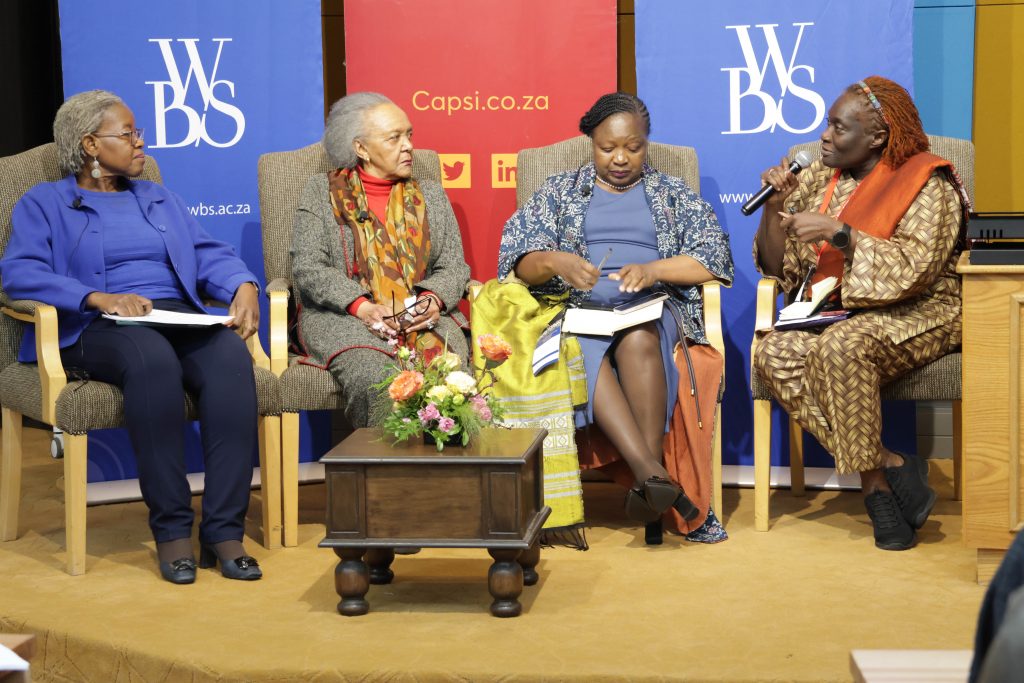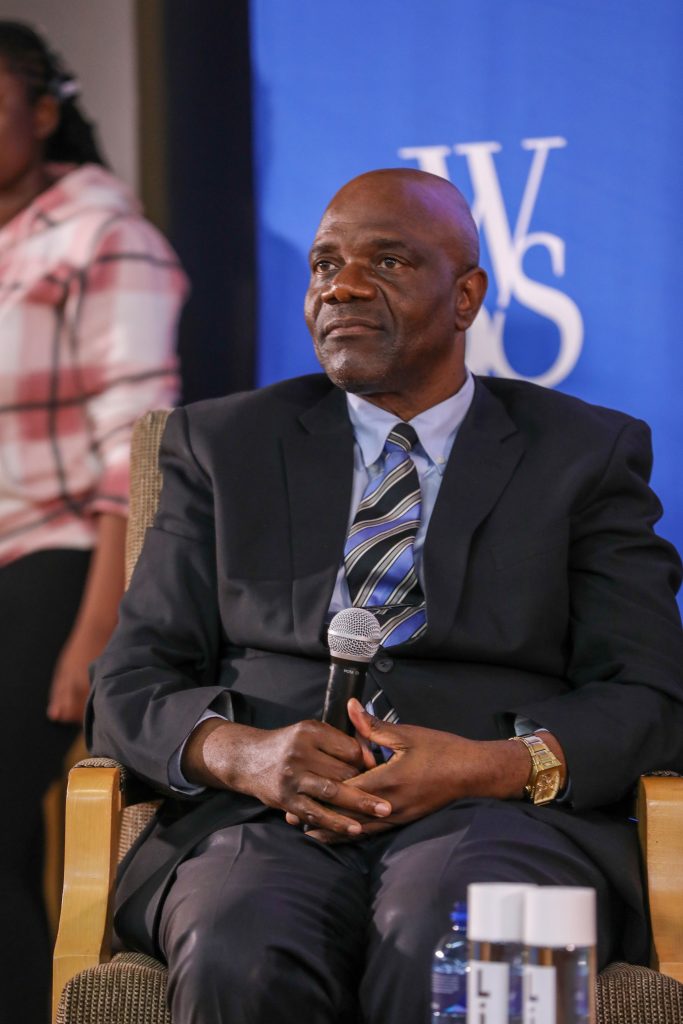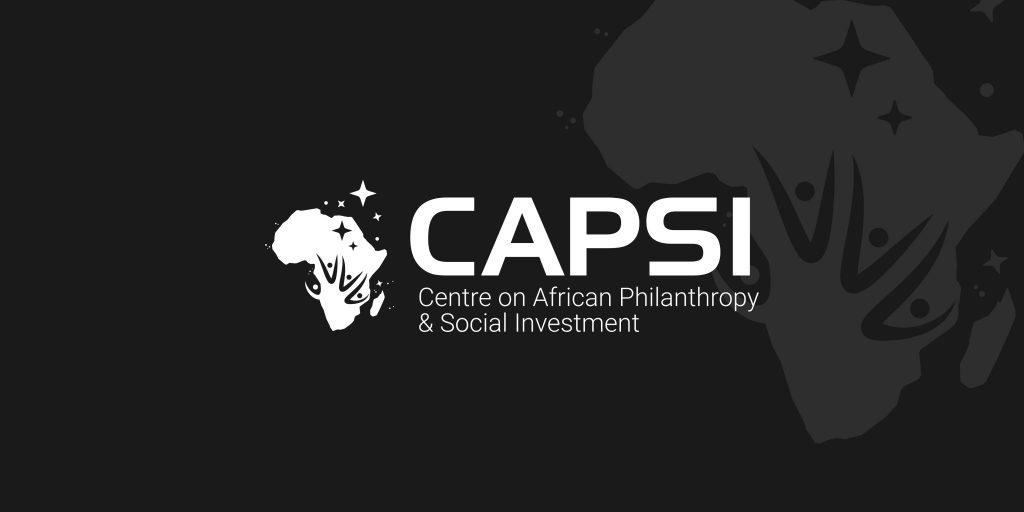
By Thandi Makhubele and Sandile Tshabalala
Earlier this year, the Centre on African Philanthropy and Social Investment (CAPSI) hosted a thought-provoking public lecture exploring the vital role of women in shaping the philanthropic landscape. The lecture, titled ‘Women in Philanthropy: Liberation, Activism and Leadership’ was delivered by Dr Barbara Masekela, South Africa’s former Ambassador to France and the United States, and former Chief of Staff to President Nelson Mandela. The lecture brought together community leaders, practitioners and scholars to reflect on the power of women’s leadership in advancing liberation, social justice and collective care across Africa.
The lecture formed part of the Adɔyɛ Dialogue Series, a CAPSI initiative that spotlights African women as architects of solidarity and custodians of intergenerational care. By anchoring this conversation within the Adɔyɛ mission, the dialogue underscored how women’s leadership in philanthropy extends far beyond material giving, encompassing culture, history and the spirit of Ubuntu.
Philanthropy is the impulse for active care
In her address, Dr Masekela reflected on the role of history and memory in shaping present-day action. Drawing from her own personal journey, she described philanthropy not as a luxury, but as a deeply human instinct: “Philanthropy is the impulse for active care and the betterment of fellow human beings,” she reminded the audience.
She emphasised that African philanthropy has always been embedded in cultural values, reminding participants that, “Ubuntu is the DNA of African culture… and we must remember that it was the Ubuntu of the international community which declared apartheid a crime against humanity.”
This view aligns with Adɔyɛ’s affirmation that philanthropy in the African context is not merely transactional but an expression of love in action – an enduring practice of care and responsibility towards others. Throughout her lecture, Masekela celebrated the central role women have always played in sustaining communities and called for greater unity and stronger advocacy, reflecting on the influence of her grandmother in shaping her own career.
“We should have a Forum for Women of all persuasions where we develop strategies to make a difference in our society,” she urged. “The present moment demands that we go beyond the catalogue of failures with which we are all too familiar with. We must devise a practical plan which is non-partisan, inclusive and sustainable to achieve genuine equality for all women. We know that before our elections in 1994, Dr Frene Ginwala worked tirelessly to establish a Women’s Coalition. We should uncover why it did not work and resolve the problem of our disunity as women. In particular, the urban-rural divide causes a skewed view of our collective experience as women. In the same vein, there is a need to tackle spatial apartheid, which separates us from each other, because we know now that Gender Based Violence affects all females, even babies and grandmothers. Every place in this country should be a safe place for women as well”.
A Dialogue on Leadership and Justice
Following the lecture, a fireside conversation featured distinguished panellists Ms Sibongile Mkhabela, Executive Director of the Barloworld Empowerment Foundation, and Ms Gugu Xaba, CEO of Save the Children South Africa. The discussion was moderated by Theo Sowa, Independent Advisor and Co-Chair of the Equality Fund.
Together, the panellists shared personal insights on leading philanthropic institutions and advancing gender justice. The panel also highlighted the urgent need for systemic change, echoing Masekela’s message that “African women are philanthropists because they are teaching, learning, and giving at all times.” Their reflection underscored that African women’s philanthropy has always been institution-building and justice-driven, echoing Adɔyɛ’s call to sustain these traditions while reimagining what the future of African philanthropy can be.
Honouring Legacies, Inspiring Futures
Dr Masekela concluded with a call to action: to safeguard the legacies of women who came before while ensuring the role of women in philanthropy remains a force for justice and healing. . Material contributions alone, she reminded the audience, cannot mend societies fractured by inequality and oppression, but love, care and solidarity can.
In summary, the conversation highlighted a truth long understood by women leaders in philanthropy: that when giving is aligned with justice, it not only alleviates need but shapes the future. In the spirit of Adɔyɛ, this dialogue celebrated iconic leaders while inspiring a new generation to carry forward these practices of solidarity, care and justice-orientated giving, ensuring that love in action remains central to African Philanthropy.
This high-level convening paid tribute to Dr Barbara Masekela and Ms Sibongile Mkhabela for their contributions to activism, leadership and philanthropy. As Africa continues to recognise and honour the contributions of women, while celebrating leadership and heritage, the message of Adɔyɛ endures: women-led philanthropy, when rooted in love and justice, is a powerful act of liberation.





